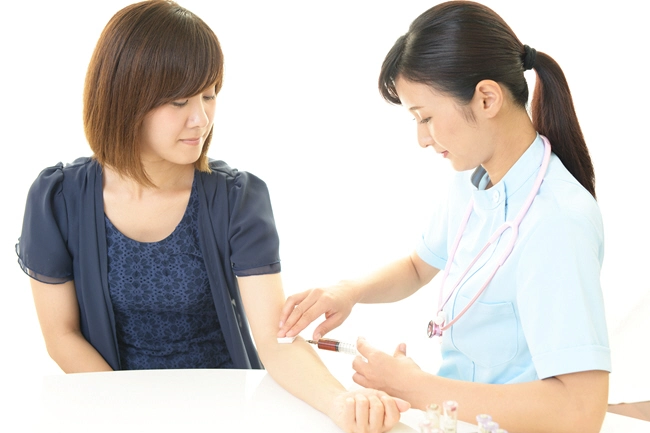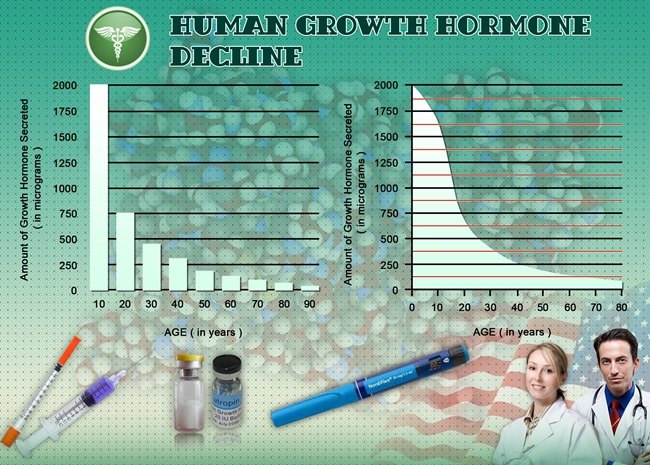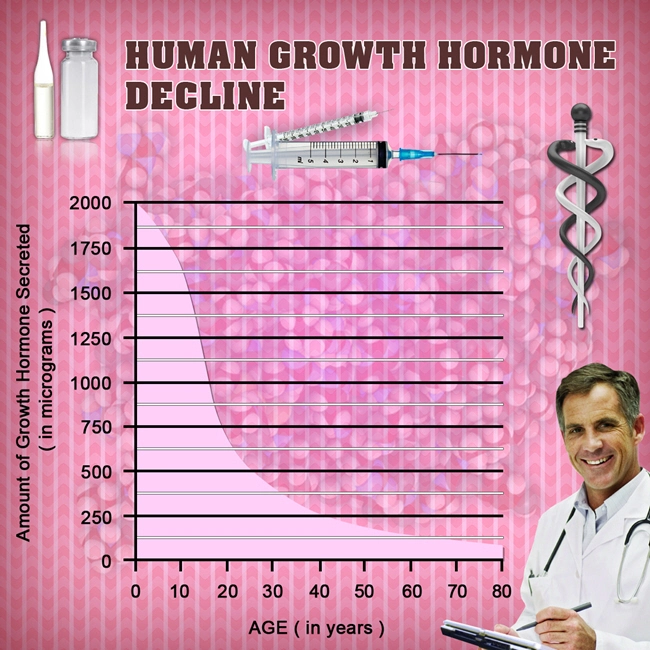
Introduction to Growth Hormone Deficiency and Genotropin
Growth hormone deficiency (GHD) is a medical condition characterized by the inadequate secretion of growth hormone from the pituitary gland. This deficiency can lead to various health issues, including short stature, delayed puberty, and reduced bone density. Genotropin, a recombinant human growth hormone, has been pivotal in the treatment of GHD, aiding in the normalization of growth and metabolic processes. As patients with GHD transition from pediatric to adult care, managing this shift effectively is crucial for continued health and well-being.
Challenges in Transitioning to Adult Care
The transition from pediatric to adult healthcare can be daunting for patients with GHD. This period is marked by changes in healthcare providers, treatment regimens, and personal responsibilities. Patients may experience disruptions in care, which can lead to non-adherence to Genotropin therapy, potentially exacerbating their condition. Furthermore, the psychological impact of transitioning to adult care should not be underestimated, as it can influence a patient's engagement with their treatment plan.
Strategies for a Smooth Transition
To ensure a seamless transition, a structured approach is essential. The first step involves early planning, ideally starting 12 to 18 months before the anticipated transfer. This period allows for the gradual introduction of adult care concepts and the establishment of a rapport with new healthcare providers. A transition coordinator can play a vital role in facilitating communication between pediatric and adult endocrinologists, ensuring that all relevant medical history and treatment details are transferred accurately.
Educating Patients and Families
Education is a cornerstone of successful transition management. Patients and their families should be well-informed about the changes they will encounter, including the differences in healthcare settings and the importance of continued adherence to Genotropin therapy. Workshops, informational sessions, and resources tailored to American males can help demystify the process and empower patients to take an active role in their care.
Monitoring and Adjusting Genotropin Therapy
As patients enter adulthood, their growth hormone needs may change. Regular monitoring of hormone levels, bone density, and metabolic markers is essential to adjust Genotropin dosages accordingly. Adult endocrinologists should be adept at interpreting these parameters and modifying treatment plans to optimize outcomes. Additionally, patients should be encouraged to report any side effects or concerns promptly, allowing for timely adjustments to their therapy.
Psychological Support and Lifestyle Considerations
The psychological aspect of transitioning to adult care cannot be overlooked. Support groups and counseling services can provide invaluable assistance in helping patients cope with the emotional challenges of this period. Moreover, lifestyle factors such as diet, exercise, and sleep play a significant role in the efficacy of Genotropin therapy. Patients should be guided on maintaining a healthy lifestyle to complement their treatment and enhance their overall quality of life.
Conclusion: Ensuring Continuity of Care
The transition to adult care for patients with GHD using Genotropin therapy requires a multifaceted approach. By implementing early planning, comprehensive education, vigilant monitoring, and robust psychological support, healthcare providers can facilitate a smooth transition that maintains the continuity of care. As American males navigate this critical phase, the goal remains clear: to ensure that they continue to thrive under the care of adult endocrinology, empowered by the knowledge and resources necessary to manage their condition effectively.
Contact Us Today For A Free Consultation
Dear Patient,
Once you have completing the above contact form, for security purposes and confirmation, please confirm your information by calling us.
Please call now: 1-800-380-5339.
Welcoming You To Our Clinic, Professor Tom Henderson.

- Unveiling the Potential of Genotropin: A Comprehensive Review of Clinical Trials and Outcomes [Last Updated On: February 21st, 2025] [Originally Added On: February 21st, 2025]
- Exploring the Impact of Genotropin on Metabolic Health in American Adult Males [Last Updated On: February 26th, 2025] [Originally Added On: February 26th, 2025]
- Genotropin Improves Lipid Profiles in American Males with Growth Hormone Deficiency [Last Updated On: March 12th, 2025] [Originally Added On: March 12th, 2025]
- Unveiling the Potential of Genotropin in Managing Idiopathic Short Stature in American Males [Last Updated On: March 15th, 2025] [Originally Added On: March 15th, 2025]
- Exploring the Efficacy of Genotropin in Treating Growth Hormone Deficiency Among American Males with Sleep Disorders [Last Updated On: March 16th, 2025] [Originally Added On: March 16th, 2025]
- Exploring the Effects of Genotropin on Lung Function in Growth Hormone Deficient American Males [Last Updated On: March 16th, 2025] [Originally Added On: March 16th, 2025]
- Exploring the Role of Genotropin in Treating Growth Hormone Deficiency and Osteoporosis in American Males [Last Updated On: March 16th, 2025] [Originally Added On: March 16th, 2025]
- Exploring the Impact of Genotropin on Exercise Performance in Growth Hormone Deficient American Males [Last Updated On: March 16th, 2025] [Originally Added On: March 16th, 2025]
- Unlocking the Potential of Genotropin Therapy: Overcoming Psychological Barriers in American Males [Last Updated On: March 16th, 2025] [Originally Added On: March 16th, 2025]
- Exploring the Impact of Genotropin on Bladder Function in American Males with Growth Hormone Deficiency [Last Updated On: March 16th, 2025] [Originally Added On: March 16th, 2025]
- Genotropin Therapy: Transitioning American Males from Pediatric to Adult Care [Last Updated On: March 16th, 2025] [Originally Added On: March 16th, 2025]
- Genotropin: Enhancing Growth and Quality of Life in SGA Children [Last Updated On: March 17th, 2025] [Originally Added On: March 17th, 2025]
- Optimizing Genotropin Therapy Compliance for American Males: Strategies and Support [Last Updated On: March 18th, 2025] [Originally Added On: March 18th, 2025]
- Genotropin: A Breakthrough in Treating Short Bowel Syndrome in American Males [Last Updated On: March 18th, 2025] [Originally Added On: March 18th, 2025]
- Genotropin: Pharmacokinetics, Pharmacodynamics, and Clinical Use in American Males with GHD [Last Updated On: March 18th, 2025] [Originally Added On: March 18th, 2025]
- Genotropin's Impact on Cognitive Function in American Males with Growth Hormone Deficiency [Last Updated On: March 19th, 2025] [Originally Added On: March 19th, 2025]
- Genotropin: Enhancing Vitality in Elderly American Males with Growth Hormone Deficiency [Last Updated On: March 19th, 2025] [Originally Added On: March 19th, 2025]
- Genotropin: Enhancing Growth in American Males with Various Disorders [Last Updated On: March 20th, 2025] [Originally Added On: March 20th, 2025]
- Genotropin's Impact on Cardiovascular Health in American Men with Growth Hormone Deficiency [Last Updated On: March 20th, 2025] [Originally Added On: March 20th, 2025]
- Genotropin: Enhancing Life Quality in American Males with Adult-Onset Growth Hormone Deficiency [Last Updated On: March 21st, 2025] [Originally Added On: March 21st, 2025]
- Genotropin Therapy: Debunking Myths and Clarifying Benefits for American Males [Last Updated On: March 21st, 2025] [Originally Added On: March 21st, 2025]
- Managing Genotropin Side Effects in American Males: Strategies and Tips [Last Updated On: March 21st, 2025] [Originally Added On: March 21st, 2025]
- Genotropin Boosts Immune Function in Growth Hormone Deficient American Males [Last Updated On: March 22nd, 2025] [Originally Added On: March 22nd, 2025]
- Genotropin: Effective GH Therapy for Post-Radiation Growth Hormone Deficiency in Males [Last Updated On: March 22nd, 2025] [Originally Added On: March 22nd, 2025]
- Genotropin: Enhancing Life Quality in American Males with Hypopituitarism [Last Updated On: March 22nd, 2025] [Originally Added On: March 22nd, 2025]
- Genotropin: A Targeted Treatment for Growth Hormone Deficiency in American Males [Last Updated On: March 22nd, 2025] [Originally Added On: March 22nd, 2025]
- Genotropin: Enhancing Sleep Quality in American Men with Growth Hormone Deficiency [Last Updated On: March 22nd, 2025] [Originally Added On: March 22nd, 2025]
- Genotropin Boosts Exercise Capacity in American Men with Growth Hormone Deficiency [Last Updated On: March 23rd, 2025] [Originally Added On: March 23rd, 2025]
- Genotropin's Cost-Effectiveness for American Males with Growth Hormone Deficiency [Last Updated On: March 23rd, 2025] [Originally Added On: March 23rd, 2025]
- Genotropin Therapy: Enhancing Growth and Life Quality in American Males with GHD [Last Updated On: March 23rd, 2025] [Originally Added On: March 23rd, 2025]
- Genotropin: Enhancing Growth and Quality of Life in Childhood Cancer Survivors with GHD [Last Updated On: March 23rd, 2025] [Originally Added On: March 23rd, 2025]
- Genotropin's Role in Managing Growth Hormone Deficiency in HIV-Positive American Males [Last Updated On: March 23rd, 2025] [Originally Added On: March 23rd, 2025]
- Genotropin: Enhancing Growth in American Males with Craniopharyngioma-Induced GHD [Last Updated On: March 23rd, 2025] [Originally Added On: March 23rd, 2025]
- Genotropin Therapy: Enhancing Growth in American Boys with Hormone Deficiency [Last Updated On: March 23rd, 2025] [Originally Added On: March 23rd, 2025]
- Genotropin: Enhancing Recovery from TBI-Induced Growth Hormone Deficiency in American Males [Last Updated On: March 24th, 2025] [Originally Added On: March 24th, 2025]
- Genotropin: Enhancing Growth in American Males with Sickle Cell Disease and GHD [Last Updated On: March 24th, 2025] [Originally Added On: March 24th, 2025]
- Genotropin's Impact on Vision in American Men with Growth Hormone Deficiency: A Review [Last Updated On: March 25th, 2025] [Originally Added On: March 25th, 2025]
- Genotropin's Impact on Quality of Life in American Males with Turner Syndrome [Last Updated On: March 25th, 2025] [Originally Added On: March 25th, 2025]
- Genotropin Enhances Skin Health in American Men with Growth Hormone Deficiency [Last Updated On: March 25th, 2025] [Originally Added On: March 25th, 2025]
- Strategies to Boost Genotropin Adherence in American Adolescent Males [Last Updated On: March 25th, 2025] [Originally Added On: March 25th, 2025]
- Genotropin's Impact on Reproductive Health in American Males with GHD [Last Updated On: March 25th, 2025] [Originally Added On: March 25th, 2025]
- Genotropin's Efficacy and Safety in Diabetic American Males with Growth Hormone Deficiency [Last Updated On: March 25th, 2025] [Originally Added On: March 25th, 2025]
- Genotropin's Impact on Dental Health in American Males with Growth Hormone Deficiency [Last Updated On: March 25th, 2025] [Originally Added On: March 25th, 2025]
- Genotropin Use in American Males with Growth Hormone Deficiency and Asthma: A Tailored Approach [Last Updated On: March 26th, 2025] [Originally Added On: March 26th, 2025]
- Genotropin's Role in Managing Growth Hormone Deficiency in American Males with Down Syndrome [Last Updated On: March 26th, 2025] [Originally Added On: March 26th, 2025]
- Genotropin: Enhancing Life for Adults with Growth Hormone Deficiency [Last Updated On: March 26th, 2025] [Originally Added On: March 26th, 2025]
- Genotropin's Impact on Emotional Well-Being in American Boys with Growth Hormone Deficiency [Last Updated On: March 26th, 2025] [Originally Added On: March 26th, 2025]
- Genotropin's Role in Treating Growth Hormone Deficiency and Rheumatoid Arthritis in American Males [Last Updated On: March 26th, 2025] [Originally Added On: March 26th, 2025]
- Genotropin: Enhancing Growth and Cognitive Function in American Males with GHD and ADHD [Last Updated On: March 26th, 2025] [Originally Added On: March 26th, 2025]
- Genotropin: Enhancing Quality of Life in Males with GHD and Pituitary Tumors [Last Updated On: March 26th, 2025] [Originally Added On: March 26th, 2025]
- Genotropin Therapy Enhances Growth in American Males with Epilepsy and GHD [Last Updated On: March 27th, 2025] [Originally Added On: March 27th, 2025]
- Genotropin's Impact on Kidney Function in American Males with Growth Hormone Deficiency [Last Updated On: March 27th, 2025] [Originally Added On: March 27th, 2025]
- Genotropin's Role in Managing Growth Hormone Deficiency in Cystic Fibrosis Patients [Last Updated On: March 27th, 2025] [Originally Added On: March 27th, 2025]
- Genotropin Therapy: Personalized Growth Hormone Treatment for American Males [Last Updated On: March 27th, 2025] [Originally Added On: March 27th, 2025]
- Genotropin's Impact on Hearing in American Boys with Growth Hormone Deficiency [Last Updated On: March 28th, 2025] [Originally Added On: March 28th, 2025]
- Optimizing Genotropin Therapy with Tailored Nutrition for American Males with GHD [Last Updated On: March 28th, 2025] [Originally Added On: March 28th, 2025]
- Genotropin's Role in Treating GHD in American Males with ASD: Efficacy and Safety [Last Updated On: March 29th, 2025] [Originally Added On: March 29th, 2025]
- Genotropin: Enhancing Growth and Well-being in GHD with Thyroid Disorders [Last Updated On: March 30th, 2025] [Originally Added On: March 30th, 2025]
- Genotropin Enhances Hair Growth in American Men with Growth Hormone Deficiency [Last Updated On: March 30th, 2025] [Originally Added On: March 30th, 2025]
- Overcoming Psychological Barriers to Genotropin Therapy in American Males [Last Updated On: March 30th, 2025] [Originally Added On: March 30th, 2025]
- Genotropin Therapy Essentials for American Males with Growth Hormone Deficiency [Last Updated On: April 1st, 2025] [Originally Added On: April 1st, 2025]
- Genotropin: A Promising Treatment for GHD and Obesity in American Males [Last Updated On: April 3rd, 2025] [Originally Added On: April 3rd, 2025]
- Genotropin's Role in Treating GHD and CFS in American Males: A Comprehensive Overview [Last Updated On: April 4th, 2025] [Originally Added On: April 4th, 2025]
- Genotropin Enhances Lung Function in American Males with Growth Hormone Deficiency [Last Updated On: April 5th, 2025] [Originally Added On: April 5th, 2025]
- Genotropin's Impact on Liver Function in American Men with Growth Hormone Deficiency [Last Updated On: April 7th, 2025] [Originally Added On: April 7th, 2025]
- Genotropin's Efficacy in Treating Fibromyalgia and GHD in American Males [Last Updated On: April 8th, 2025] [Originally Added On: April 8th, 2025]
- Genotropin's Role in Managing Osteoporosis in American Males with Growth Hormone Deficiency [Last Updated On: April 9th, 2025] [Originally Added On: April 9th, 2025]
- Genotropin Therapy: Enhancing Communication for American Males' Treatment Success [Last Updated On: April 9th, 2025] [Originally Added On: April 9th, 2025]
- Genotropin: A Dual Treatment for Growth Hormone Deficiency and Anemia in American Males [Last Updated On: April 9th, 2025] [Originally Added On: April 9th, 2025]
- Genotropin's Role in Managing Growth Hormone Deficiency in American Males with MS [Last Updated On: April 10th, 2025] [Originally Added On: April 10th, 2025]
- Genotropin Therapy for GHD in Males: Ethical Considerations and Autonomy [Last Updated On: April 11th, 2025] [Originally Added On: April 11th, 2025]
- Genotropin: Managing Growth Hormone Deficiency in Hypertensive American Males [Last Updated On: April 12th, 2025] [Originally Added On: April 12th, 2025]
- Genotropin Enhances Joint Health in American Men with Growth Hormone Deficiency [Last Updated On: April 13th, 2025] [Originally Added On: April 13th, 2025]
- Overcoming Cultural Barriers to Genotropin Therapy in American Males [Last Updated On: April 15th, 2025] [Originally Added On: April 15th, 2025]
- Genotropin's Impact on Digestive Health in American Males with GHD [Last Updated On: April 15th, 2025] [Originally Added On: April 15th, 2025]
- Genotropin: Treating Growth Hormone Deficiency and Sleep Disorders in American Males [Last Updated On: April 15th, 2025] [Originally Added On: April 15th, 2025]
- Genotropin's Impact on GHD and Depression in American Males: Benefits and Considerations [Last Updated On: April 16th, 2025] [Originally Added On: April 16th, 2025]
- Genotropin: Effective GHD Treatment for American Males with Allergies [Last Updated On: April 17th, 2025] [Originally Added On: April 17th, 2025]
- Genotropin's Dual Efficacy in Treating GHD and Anxiety in American Males [Last Updated On: April 17th, 2025] [Originally Added On: April 17th, 2025]
- Genotropin's Impact on Reproductive Health in American Males with Growth Hormone Deficiency [Last Updated On: April 17th, 2025] [Originally Added On: April 17th, 2025]








